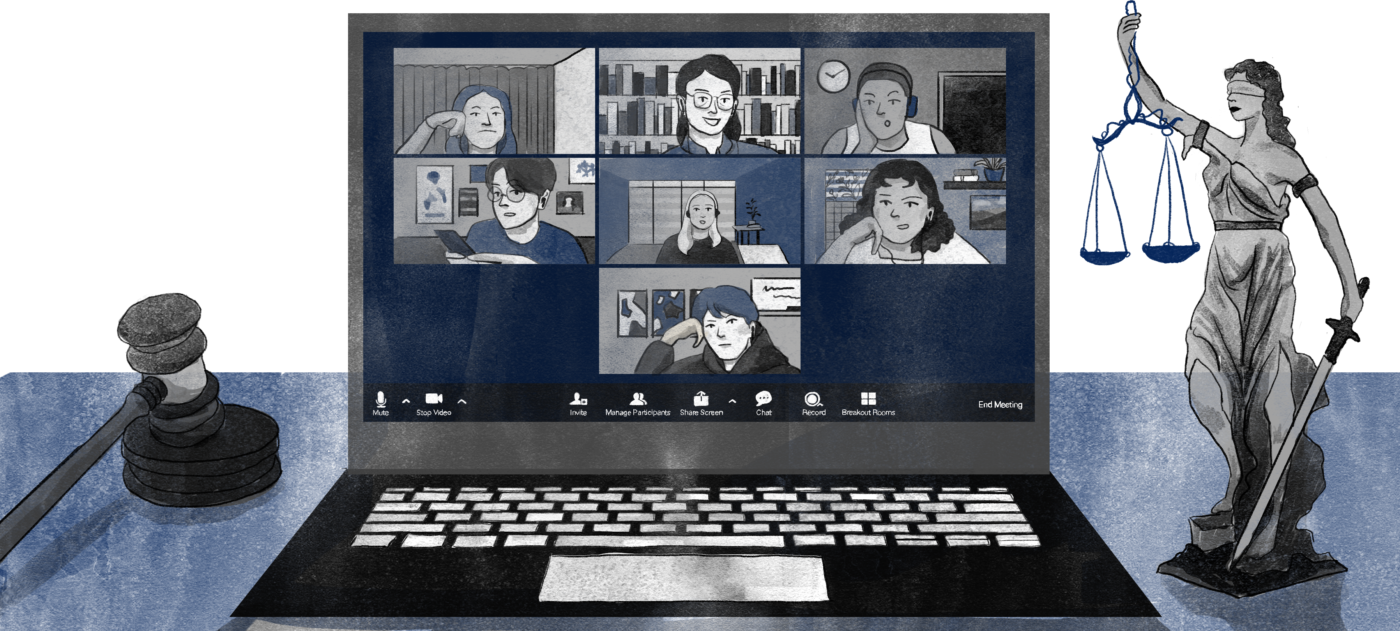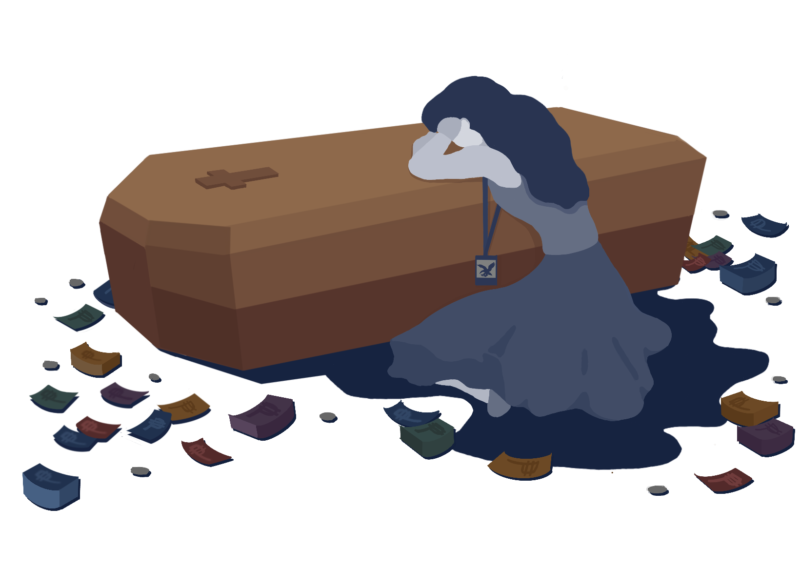THE SHIFT to online learning poses great challenges to the LS, a community that integrates and reinforces holistic formation through rules and regulations. However, LS students and employees may find its academic policies challenging to observe at this time. In any case, the LS is expected to embrace the Jesuit principle of restorative justice in disciplinary cases, even as the school goes online.
Restorative justice heavily emphasizes dialogue, relationship building, and communication of moral values between the offended and the offending parties in a case. As the LS continues to operate online, it is crucial to look into the disciplinary practices of a community now restricted by the pandemic.
Within the classroom
To guide the LS community in remote learning, the Associate Deans for Academic Affairs and for Graduate Programs jointly issued the academic policies for the First Semester of AY 2020-2021 last August 26. However, these guidelines have turned into a source of confusion for some.
Steve* recounts how his instructor required them to turn on their cameras and microphones as they synchronously took exams outside the official class hours, thus violating the memo’s clause on synchronous class sessions. Describing their confusion, Steve says, “If feeling pala ni sir hindi makaka-maintain ng integrity ‘yung [memo], what’s the point? Bakit pa may memo kung ‘yung rules ni sir ang masusunod?” (If sir feels that the memo doesn’t maintain integrity, what’s the point? Why release a memo if our instructor can overrule it?)
Aside from the faculty’s reinforcement of the policies, their knowledge of these academic policies was also called into question. “I don’t know if the professor we had was just ignorant or maybe there was no proper orientation,” says Amber*, whose instructor gave them assessment tasks that differed from the class syllabus. Patrick* shares the same experience in his online classes. Whether on-site or online, however, the Magna Carta of Undergraduate Student Rights already prohibits any changes in requirements without the approval of the department chair and the consent of the class.
Addressing these concerns, School of Social Sciences Dean Fernando Aldaba, PhD maintains that departments may add academic guidelines provided that they do not clash with LS official policies. Since Steve and Amber’s instructors transgressed existing LS rules, their cases were brought to the department chairs concerned. Steve noted that their instructor became more lenient about microphones but maintained that the students should keep their cameras on. As of writing, Amber’s case is currently being processed by their school’s dean with the possibility of reaching the Office of the Associate Dean for Academic Affairs (ADAA).
Nevertheless, LS Human Resource Services Head Marie Milagros Tendero shares that faculty in the LS are never suspended or terminated for violating academic teaching policies alone. She says that academic cases are handled by the Associate Dean for Academic Affairs, who imposes no penalty beyond a reprimand.
Outside the walls
However, Tendero explains that an employee may incur severe sanctions depending on the gravity of the offense, including but not limited to the falsification of documents, habitual absences, and theft. Citing the University Employee Code of Discipline, she explains that penalties may include a written reprimand, suspension, or termination.
Due to remote working arrangements, Tendero shares that the process of filling out and exchanging documents for disciplinary cases have changed. For employees who do not have internet access, the LS arranges on-site hearings. In other cases, documents are physically transmitted to the employee’s place of residence.
Ultimately, Tendero ensures that the Ignatian principle of care for the person is practiced when processing disciplinary cases in the LS. “The guiding principle in handling these complaints is due process and impartiality,” she states. Besides this, Tendero says that the counseling, spiritual direction, and other forms of support are offered to both the complainant and the alleged offender during and after the case hearing.
Supporting the home
Students may also find themselves with a disciplinary case—as such, the administration also offers their support to the accused. The Office of Student Discipline (OSD), which deals directly with student violations of the handbook, emphasizes the same compassion and restorative justice for students. Student Discipline Administrator for Gender and Special Concerns Maria Estrella V. Paulino shares that the COVID-19 pandemic’s toll on mental health has led to a closer coordination between OSD and the LS Office of Guidance and Counseling. Considering the added anxiety with facing an investigation, Paulino notes that students involved in complaints are approached first by guidance counselors before getting informed of their disciplinary cases.
On April 24, OSD released a memo temporarily suspending the processing and hearing of cases involving non-graduating students. This was followed by another memo on August 14 fully fleshing out new discipline processes, including the resumption of disciplinary hearings, online formation sessions, and the inclusion of community service projects.
In lieu of on-site community service, OSD allowed students to propose Community Service Projects such as the production of personal protective equipment (PPE) for frontliners and COVID-19 kits for jeepney drivers. Paulino adds that they also refer students to Jesuit feeding programs if they live close to these sites.
Despite these innovations, OSD cites difficulties in reaching out to students with complaints as they often do not reply to emails or phone calls. When all means fail, OSD calls the student’s home.
Setting the groundwork
Bridging the communication gap in a remote setting comes with multiple challenges. According to Aldaba, academic policies are communicated through several layers. From the Vice President’s Council, LS rules are discussed with department chairs and program directors before reaching the faculty. All memos, he adds, are also sent through Blueboard, a mailing list for announcements relevant to University personnel. Students may also approach the Sanggunian’s Student Rights and Welfare Desk should they need assistance in filing cases.
Despite these efforts, Amber and Steve’s cases reveal the deficiency of this communication process in ensuring that LS policies are clear and consistent. As Patrick shared with his professor going overtime on learning hours, “In on-campus classes, it’s easier to tell your prof that we’re going past class hours or we’ve been spending too much time on it. […] It’s not like emails can be seen as urgent compared to actually talking to them live.”
Online or offline, the LS is a community rooted in compassion and inclusivity. However, crafting policies is different from the continued enforcement of these rules. As the University continues online, it is imperative that students, faculty, and administrators play their part in enforcing the policies that intend to protect them.
*Editor’s Note: Interviewee names have been withheld upon their request to protect their identities and privacy.







